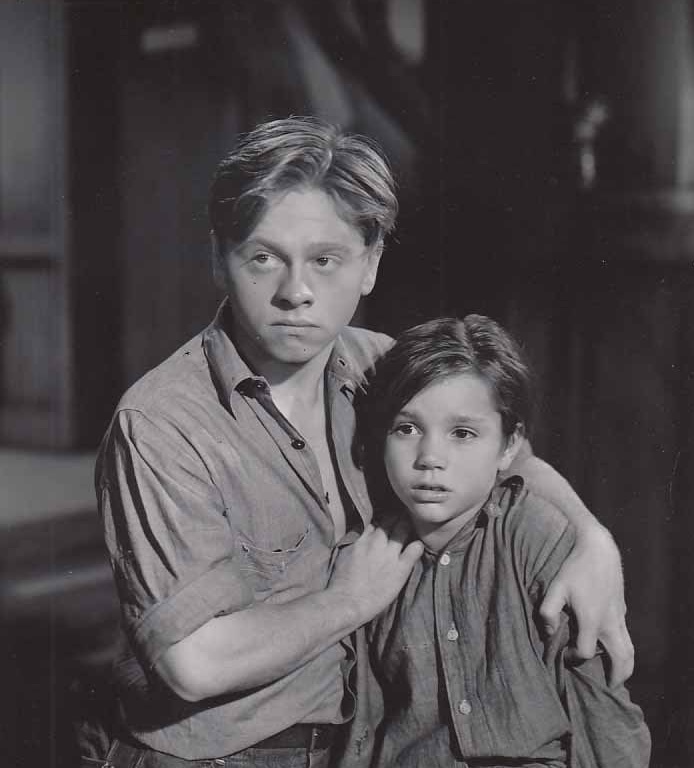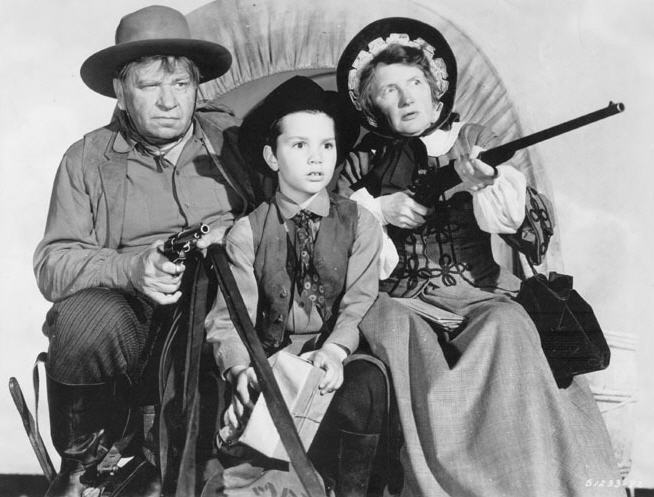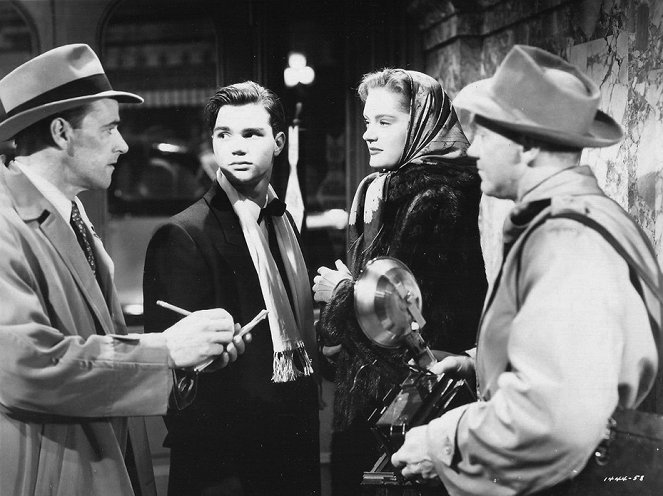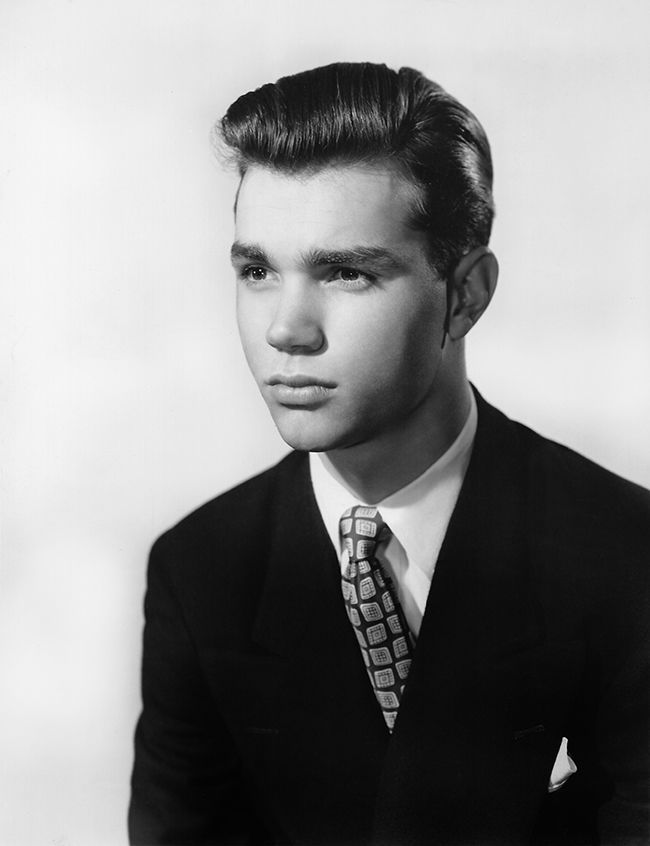Darryl Hickman represented the lost concept of the ubiquitous child actor in films. Someone who often showed up whenever younger actors were needed. So much so, that they become recognizable names themselves. Child actors having name recognition in films just isn’t very common anymore. Many child actors of the past (likely including Hickman) would probably say good riddance to this. But the fact stands that one of the reasons Hickman had such a long career and worked so hard as a child actor was because he had honest to goodness talent. More than just a cute face, Hickman managed to stand on his own and make quite an array of bona fide classics well before adulthood. He began working in films when he was five, often uncredited. His first work was Three Cheers for Love (1936), but he later said If I Were King (1938) was the first one he really remembered doing.
His “big break” came when he played Henry Fonda’s little brother Winfield in the classic, perfect The Grapes of Wrath (1940) as we see the dust bowl and poverty through the eyes of children, as well as adults and the old. There’s a memorable scene where he and Shirley Mills discover plumbing. He played youthful parts in The Way of All Flesh (1940) and Young People (1940) and got a good role as a tough street kid in reform school rather than Boys Town in Men of Boys Town (1941). The film was much more adult in some ways than its predecessor and one that we think is quite underrated, especially when it comes to the scenes with Hickman and Mickey Rooney. Another stand-out at the time was playing a child star in the meta Glamour Boy (1941) with Jackie Cooper kind of playing himself. He takes Hickman under his wing when he is selected to play Skippy in a remake.
Hickman mostly worked at MGM in the mid-1940s and saw more interesting roles, including as Robert Young and Marsha Hunt’s son in Joe Smith, American (1942), a part that would have been usual and rather boring with a lesser actor. He also was one of many kids who worked with Wallace Beery, his is Jackass Mail (1942). Hickman was also the only child actor to recall working with Beery fondly. I guess he was in a better mood on the film. He was also in the more prestigious film The Human Comedy (1943) with old co-star Mickey Rooney, almost unrecognizable as a nerdy outcast (“scared is…being afraid.”). He left MGM around 1945 and began freelancing.
It was more supporting roles and playing the stars as kids in such films as Salty O’Rourke (1945), Captain Eddie (1945), and Rhapsody in Blue (1945). He was memorable as Jerome Courtland’s annoying kid brother who thinks everything is dumb in the later Shirley Temple vehicle Kiss and Tell (1945). He would later be promoted to Courtland’s role and leading man in the remake, A Kiss for Corliss (1949). But I’m sure nothing quite prepared the public for his finest and arguably best-remembered role in Leave Her to Heaven (1945). It wasn’t that the part was different from the kind he played before, but the way it was presented, and the tropes played with that made it stand out. Of course, the classic scene on the lake remains a staple of cynicism in films. Horror masters could never make a scene as startling as that. No matter how many times I watch that movie, I must close my eyes during that part. Daryl Zanuck even called the scene the best 20th Century Fox had done when he first saw it.
Hickman’s good roles continued, but they certainly didn’t live up to Leave Her to Heaven. He was one of the mistreated seamen in Two Years Before the Mast (1946) and a juvenile delinquent in the clear Boys Town inspired Boys’ Ranch (1946), but Skip Homeier had the best part in that one. At the end of the decade, he worked with former child actors Billy Halop, Scotty Beckett, and Dickie Moore in the adolescent Dangerous Years (1947) and such films as Fighting Father Dunne (1948), Any Number Can Play (1949) (as Clark Gable and Alexis Smith’s son), and Alias Nick Beal (1949), but his best part of the time was the more adult role in The Set-Up (1949) as a novice boxer. There was a string of more adolescent roles, however, with the fine The Happy Years (1950) with an array of talented child actors and Lightning Strikes Twice (1951). He also began turning to the new television medium where a larger variety of roles were offered.
He played more adult roles in Destination Gobi (1953) (a good showcase for him) and Island in the Sky (1953) and finally went to college in Tea and Sympathy (1956) but began working more frequently in television. His TV work included The Lone Ranger, Climax!, Alfred Hitchcock Presents, and one of the first episodes of Perry Mason (a goodie, if you have an hour to spare). He worked so extensively on TV, that it dominated his work in the late ‘50s, though he did have the juvenile lead in the Roger Corman classic The Tingler (1959). On top of acting in TV, he also wrote some episodes of The Loretta Young Show and Hawaiian Eye. He also played the brother of his real-life brother, Dwayne Hickman, in the series The Many Affairs of Dobie Gillis. The only films he made in the ‘60s were TV movies, not returning to the big screen until the classic Network (1976). He was also active in television production at the time.
Later in his life, he dedicated his time to teaching acting and having his own approach to acting called “The Process”, which he developed after studying at the Actors Studio. His later film and TV work was mainly voice acting until he retired. Having practically been forced into acting as a child to support his family, like many of his contemporaries, it seemed like Hickman finally accepted and embraced his profession. That was a luxury that many child actors of his era didn’t have and a path they didn’t take. Though Hickman said that it wasn’t a healthy way to grow up and that he feels compassion for any child actor, having worked with them all.
~Bianca






